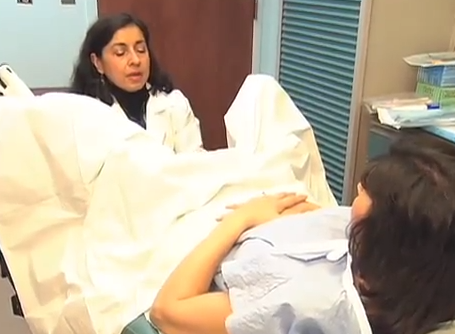Tips to Help Sexually Abused Victims Overcome Their Fear of Pap smears

Every two minutes someone in the country is sexually assaulted, according to the Rape, Abuse and Incest National Network (RAINN). Victims of sexual assault or abuse are three times more likely to suffer from depression, as well as a host of other mental conditions. A new study also indicates victims are more likely to skip Pap smears.
In a study published in the Journal of Family Planning and Reproductive Health Care, researchers instructed volunteers to complete a survey on the National Association for People Abused in Childhood (NAPAC) website. The survey included closed questions on demographic characteristics and cervical screening attendance. Open ended questions included discussed barriers to screening. A content analysis was used to decipher the responses.
The results revealed only 49 percent of women who were abused as children underwent cervical screening compared to 79 percent of the general population.
"One way of coping with the trauma of sexual abuse is to control or avoid the triggers of trauma responses," researchers wrote. "Intimate gynecological examinations can be particularly stressful for women who have been abused because of the parallels with the abuse situation, for example, perceived loss of control, the power disparity, and the physical sensation of the examination."
Though the fear of reliving the feelings of shame, guilt, self-blame and feeling unclean, contaminated or dirty may inhibit victims of sexual abuse from undergoing cervical cancer screenings, it is imperative they do. Women who have been sexually abused are more likely to develop cervical lesions in addition to participating in risky behavior such as drug or alcohol abuse.
However, Sarah Kelly, training and development manager at the abuse survivors' support association, was able to compose a list of steps successfully taken by sexually assaulted victims to improve their experience.
These tips include:
- The survivor having time and space to talk about their fears and anxieties of having the test.
- A friend or supporter being present during the test.
- The smear taker having an understanding and insight into the issues of childhood abuse and the legacy of issues that adult survivors can face.
- A discussion of words/responses which would trigger anxiety or flashbacks for a survivor and finding alternative 'safe' words to replace these. For example, many smear takers would tell the woman to try to relax during the test. The word 'relax' is often used by abusers and can be very frightening for survivors; an alternative is to agree a word in advance to use in discussions with the patient.
- A private and comfortable environment for undressing and for the smear test to be taken.
- A clear signal agreed beforehand for the woman to be able to halt the test if she needs to at any stage.



























